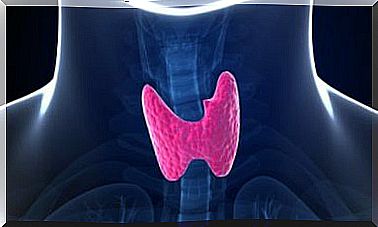Is It Possible To Diagnose Alzheimer’s Disease From The Very Beginning?

The onset of Alzheimer’s is a complex of symptoms that is very easy to overlook, especially in the earliest stages, when the progression of the disease can still be slightly delayed. The statistics on Alzheimer’s disease research in recent decades are alarming: the number of new cases is increasing drastically, and not only among the elderly.
Although scientists to this day have not been able to determine the specific causes or factors “detonating” the onset of Alzheimer’s , they have managed to identify a series of symptoms that are a warning signal against the development of this sad and still incurable disease. They should be responded to almost immediately as they proceed with surprising speed.
Remember that Alzheimer’s disease is unpleasant not only for the patient himself, but also for his immediate family and friends. Hence, it is extremely important to react quickly in the event of noticing the first symptoms of memory loss. But is it really possible to stop the development of this terrible disease? You will find the answer to this question later in the article.
The origins of Alzheimer’s, or how and where the disease is born
The human brain is an extremely complex and complicated multifunctional center that is responsible for controlling the organic functions of the entire organism. The nerve cells of the brain interpret external stimuli and then pass them on to muscles, bones, organs, glands …
In this we can react to various situations:
- We eat when we are hungry
- We drink when we feel thirsty
- We are moving
- We take care of physiological needs
- We remember information, etc.
Although deterioration of memory and brain function is a natural process, Alzheimer’s disease exacerbates dementia so much that the patient is unable to recognize the faces of even the closest people.
What is Alzheimer’s disease?
Alzheimer’s disease is a neurodegenerative disorder that results in the gradual loss of basic brain functions, leading to permanent and irreversible damage to the brain’s nerve cells. Although it is associated with the aging of the body, Alzheimer’s disease is also increasingly common in people at a young age.

In the medical dictionary, the term ” dementia ” is a permanent brain injury that is manifested, inter alia, by a loss of memory and cognitive decline. This means deterioration of the condition of neurons and, consequently, their death.
As mentioned earlier, brain performance declines with age, so dementia and the onset of Alzheimer’s usually appear in old age.
The earliest symptoms of Alzheimer’s disease
Alzheimer’s disease, also commonly known as dementia or dementia, is a disease in which the brain’s nerve cells progressively degenerate. As the degenerative process progresses, there is a change in the patient’s daily behavior.
In the most severe cases, there are serious psychological complications.
Employees of the international Alzheimer federation (Alzheimer Disease International) compiled a list of ten symptoms that occurred in patients in the early stages of the disease. If you notice some of them at home, contact a specialist as soon as possible. Find out about the ten earliest symptoms of Alzheimer’s disease:
- Memory disorders that hinder daily functioning
- Difficulties in performing daily activities and tasks (even those to which we have been used to for years)
- Disorientation in space and time
- Visual disturbances (problems with reading, distinguishing colors), problems with interpreting the images seen
- Difficulty speaking or writing
- Losing and hiding things in strange places and having trouble finding them
- Difficulty making sound decisions, inability to properly assess the situation
- Loss of initiative and motivation to take up challenges (withdrawal from social life, lack of interest in personal hygiene, giving up on your favorite activities)
- Frequent mood disorders, strange behavior, personality change
Factors favoring the development of Alzheimer’s disease
The medical world has not yet been able to establish clear factors that “activate” the onset of Alzheimer’s. In addition to the aging of the body, there are other factors that may be associated with the development of this disease.

These include, among others:
- Smoking tobacco
- Alcohol abuse
- Consumption of toxic and chemical narcotic substances
- Unhealthy, nutrient-poor diet
- Sedentary lifestyle
- Overweight and obesity
- Sleep disturbances (insufficient night rest, poor sleep quality, insomnia …)
- Anorexia and other emotional and digestive diseases
- Cardiovascular disorders, for example high blood pressure
- Brain damage as a result of an accident, injury or disease
Can the origins of Alzheimer’s be reversed?
Unfortunately, the onset of Alzheimer’s is brain changes that we cannot reverse. At most, we can slow the progression of the disease. What we can do at a young age is to prevent changes in the best possible way by leading a healthy lifestyle and by constantly exercising the brain.

In this case, prevention consists in eliminating the basic risk factors from everyday life. Below is a list of healthy habits that can significantly delay the onset of Alzheimer’s disease or prevent the development of the disease altogether. Remember that lifestyle changes should affect both the physical and emotional dimensions of our body.
How to protect yourself from Alzheimer’s disease?
- Take care of a healthy daily diet. Prepare your meals carefully using natural ingredients. Eat small portions. Avoid highly processed foods, empty calories, and excess fat and sugar.
- Do sports regularly. Take at least 30 minutes of physical activity a day.
- Maintain a healthy body weight. Lose unnecessary kilograms on a regular basis, thanks to which you will prevent overweight and related cardiovascular diseases.
- Enrich your daily diet with foods rich in vitamin C and antioxidants. Eat a portion of citrus fruits, forest fruits, green-leafed vegetables, dried fruits, and fish high in omega 3 and 9 fatty acids every day.
- Take stress out of your daily life. Learn about various relaxation techniques, such as yoga or meditation. Develop your interests and look for new challenges.
- Every day, find a moment just for yourself. Be creative and stimulate your brain to work often. Find an original hobby that will help you strengthen the cognitive functions of the brain and stimulate the regeneration of nerve cells in the brain in a natural way.
- Take care of sleep hygiene. Sleep at least eight hours a day. Try to keep your sleep deep and uninterrupted.
- Maintain good contacts with loved ones and try to be in places where there is positive energy.
- Take care of your well-being, constantly raise your self-esteem, chase away negative thoughts. If you feel the need, ask a psychologist for help.
- Try to avoid alcohol, quit smoking and avoid taking highly toxic intoxicants.









